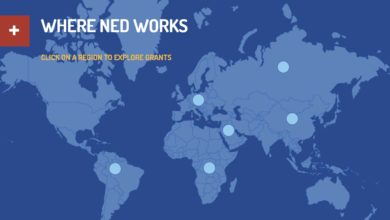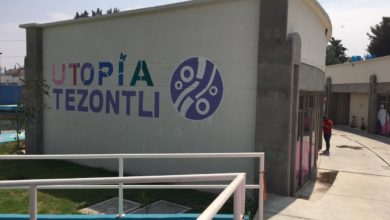 Aizar Raldes/AFP/Getty Images |
Revolution is in the air in Bolivia. The massive intervention of a determined people has led to the ouster of the president. As of early June, the entire social and political order is in grave crisis. Recent amendments to Bolivia’s hydrocarbon law sparked the resurgence of a radical grassroots movement. The Indigenous groups leading the demonstrations demand the full nationalization of Bolivia’s energy industry—a call backed by the Bolivarian Workers’ Federation. The groups see nationalization as a way to equitably distribute the wealth created by natural gas and oil, Bolivia’s most valuable resources.
Another motivation for the protests is the push for greater autonomy by richer sections of the country. This autonomy movement is an attempt by the European-descended ruling class elite of the east and the south, where the gas reserves are located, to exercise greater control over the resources and insulate themselves from the political influence of the western indigenous movements.
The mass popular uprising forced President Carlos Mesa to resign on June 6. In 2003, Mesa, then vice president, took power after President Gonzalo Sánchez de Lozada was brought down by similar protests.
Events in Bolivia are unfolding quickly, with many events and changes happening each day. Even after the resignation, the streets of La Paz were constantly filled with tens of thousands of protesters talking enthusiastically about what to do next. Right wing elements threatened civil war and a military seizure of power against the masses.
Imperialist exploitation continues in Congo
Violence and conflict continues to plague the resource-rich Democratic Republic of Congo, ravaged by civil war since 1998. On one side is the Congolese government, allied with Angola, Namibia and Zimbabwe, and on the other side are the “rebels,” controlled by U.S. client-states, Uganda and Rwanda. The war followed the ousting of the U.S.-backed dictator Mobutu Sese Seko in 1997.
A U.N. “peacekeeping” force of 16,700 troops is currently stationed in the Congo. In recent months, the UN has intensified its aggressiveness. UN troops reportedly killed 38 people in April and 50 to 60 more in a subsequent military offensive.
The real purpose of the UN presence is to protect longstanding imperialist interests in the region. Ever since Belgium colonized Congo in the 19th century, European powers and (more recently) the United States have competed for control of the nation’s resources. Transnationals have provided local militias with material support to defend corporate interests and facilitate gold and diamond extraction from Congolese mines.
Mexico teachers’ union protests privatization
Public school teachers in Mexico are facing the specter of privatization, a threat to their unions and jobs. On May 15, National Teacher’s Day, tens of thousands of teachers called for better wages and working conditions.
In Morelia, Michoacan, members of the National Education Workers Union marched to kick off 21 days of planned action. On May 20, the union organized the closure of 30,000 schools throughout Mexico, staged massive protests and a strike. The teachers insist on greater funding to help students equalize the disparities of the current education system. They called for more public funding to assist students in impoverished states and regions.
The struggle was most acute in the southeastern Mexican state of Chiapas, where four teachers were imprisoned. State Governor Pablo Salazar also fired 400 teachers for exercising their right to strike.
Health care workers and Indigenous and campesino organizations have joined the struggle. They went on strike in solidarity with the teachers.
 Photo: EPA/Jesuit Services For Refugees |
The government of the Dominican Republic has expelled 4,000 Haitians and Dominicans of Haitian descent since May 13. A dire humanitarian crisis has resulted along the Haitian-Dominican border as thousands of people struggle to survive and reunite with their families. The deportation followed the murder of a Dominican merchant woman near the rural farming town of Monte Christi on May 9.
Many of the deportees are children, pregnant women and migrant workers. The deportations proceeded without verification of the legal status of the deportees’ residency in the Dominican Republic. Human rights groups estimated that around 400 of the deportees are Dominicans of Haitian descent, with no family in or knowledge of Haiti.
According to the Jesuit Refugee and Migrant Service, “Frontier Solidarity [a Jesuit group] witnessed the expulsion last weekend of over 2,000 people who arrived in Ouanaminthe [Haiti] in the most inhuman conditions: in rags, starving, crammed into the vehicles carrying them, wounded physically, emotionally, and in their dignity.”
The Dominican National Police receives significant training from U.S. military and police, including the New York City Police Department.
“Expulsion is the most common Dominican response to unwanted Haitian migrants,” noted a report published by Minority Rights Group International. “Mass expulsions are normally military-led and centrally planned. The criteria for deportations are explicitly racist: a suspected undocumented migrant must appear to be Haitian, in other words Black.”






